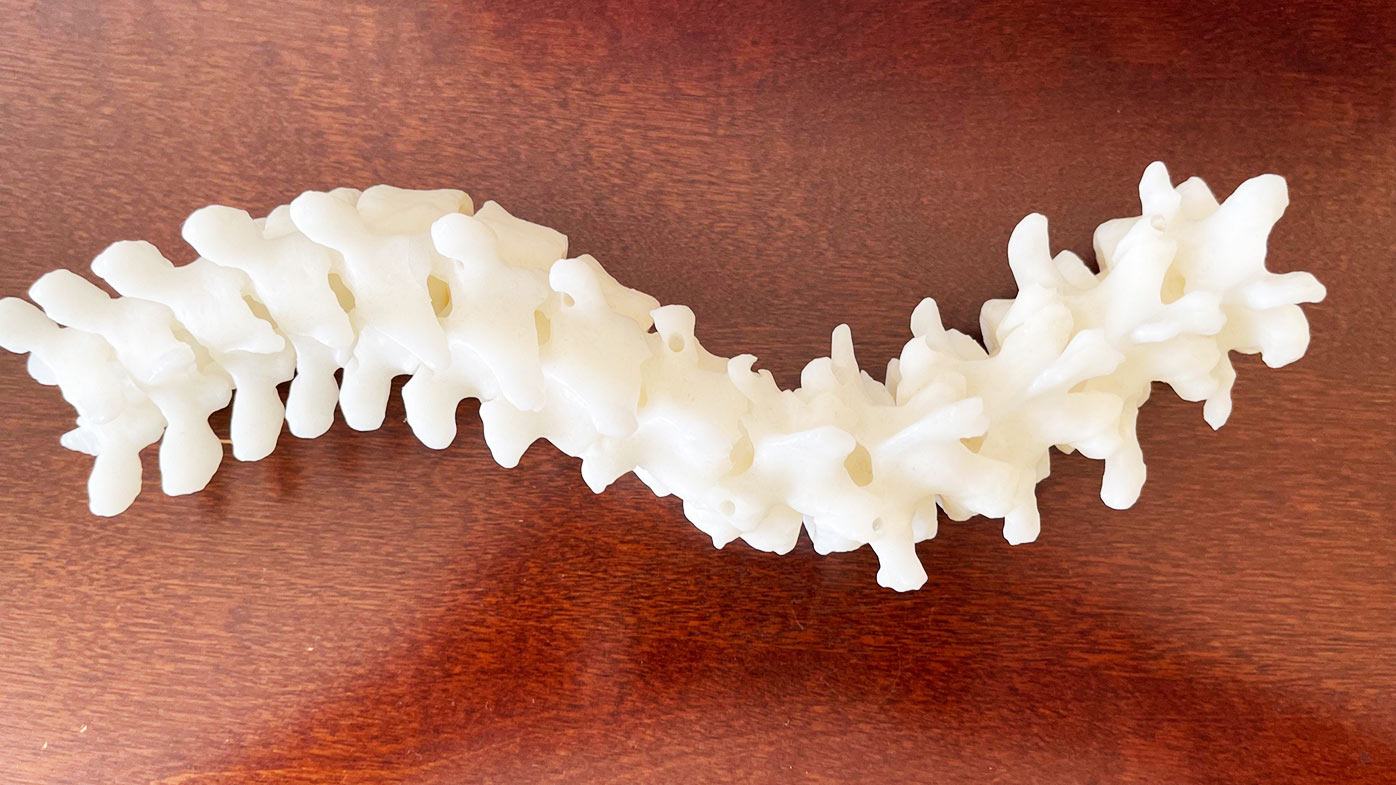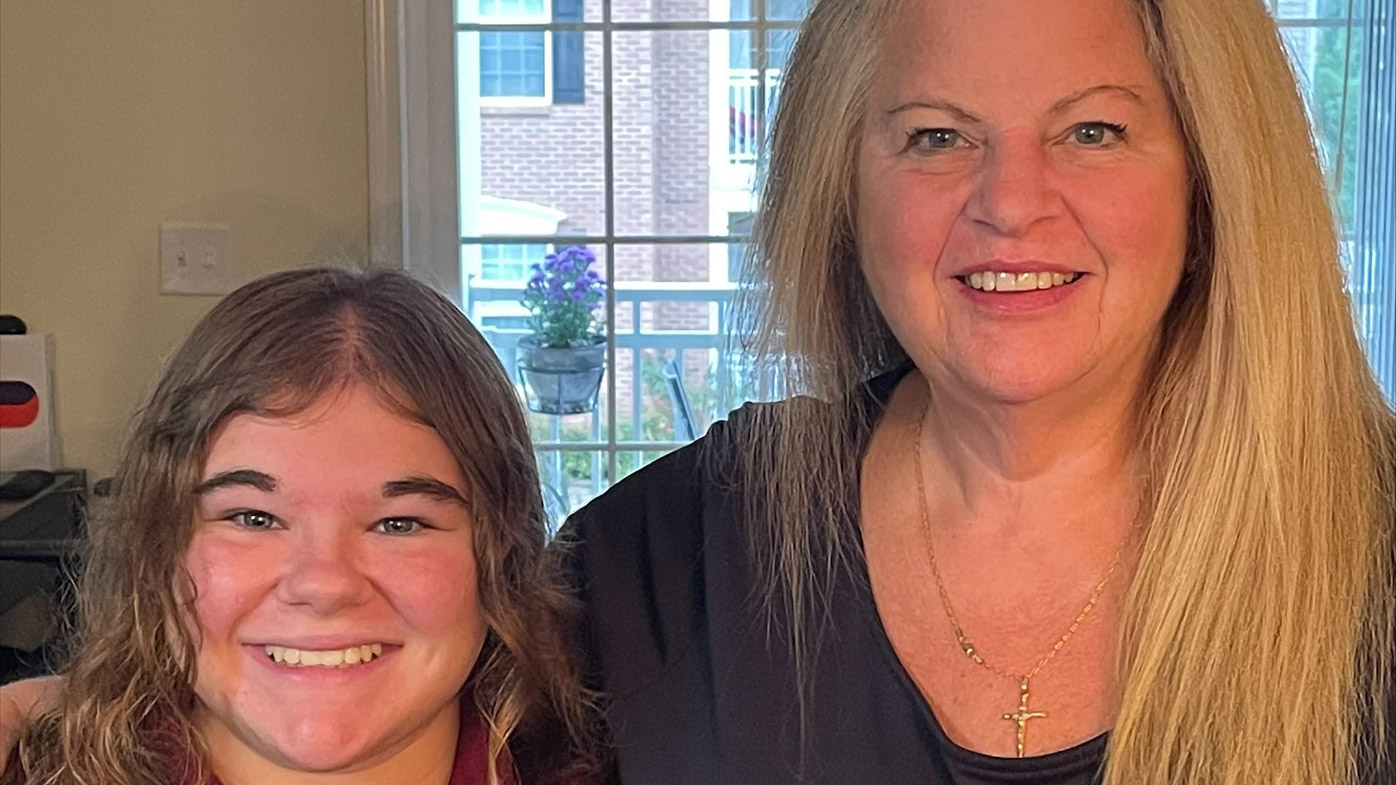
Once the diagnosis was made, a surgery date for Emily was set: June 5, 2018. At 5:30 AM, Vitella and her daughter traveled to the hospital — few words were exchanged as they quietly listened to the radio. Upon arrival, Vitella was amazed at the speed in which the hospital staff got her daughter prepped and ready for surgery.
What Vitella and her husband, Tom, were not ready for, however, was the anticipated 3-4 hour surgery painfully stretching into seven long hours.
“My husband was flipping out,” Vitella said. “I was OK — I’ve got the optimistic mom gene. But it was the longest seven hours of my life.”
The doctor and nurses often came to the waiting room to share updates and the surgery status. At last, Vitella’s daughter made it to the recovery room, was up and walking within a few days and ultimately released.
Now, she’s a happy, healthy 15-year-old with an 18-inch scar up her back and a very unique Halloween decoration. While Vitella’s family knows outcomes vary for patients with this condition, they have found their own coping mechanism in the face of this experience.
“When my daughter was being assessed before surgery, the doctor made a model of her spine, which was all twisted,” Vitella said. “We put it out as a decoration every Halloween.”
Vitella’s optimism and memories of her daughter’s journey take on a bit of a brighter tone. “For this experience, it was like all the stars aligned between our relationship with the doctor, his wife being my friend, the hospital with the name Bristol Myers Squibb up on the wall, it was meant to be.”
20 years of pediatric care and an eye toward the future





